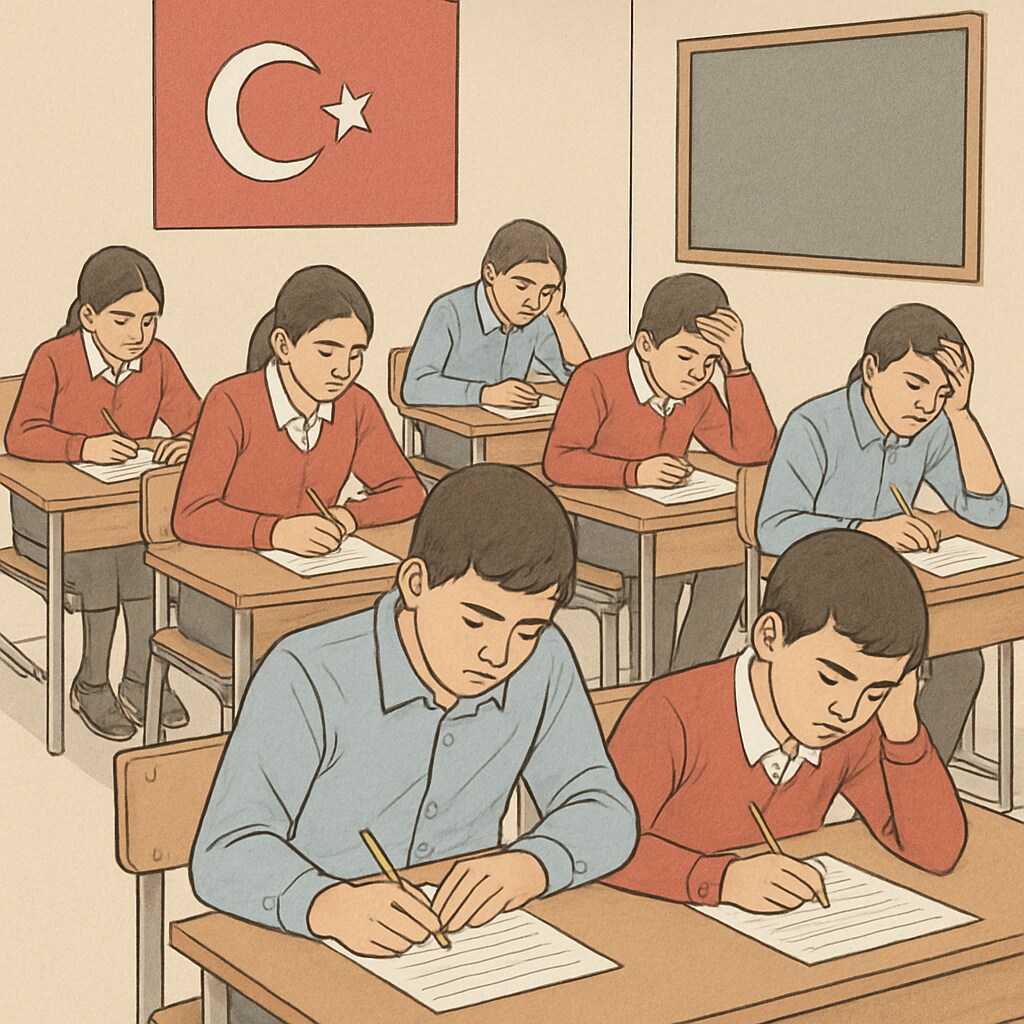The education systems in Turkey and the UK differ significantly in structure, approach, and outcomes. Turkey’s centralized exam-based model places immense pressure on students, limiting their freedom to explore diverse subjects and stifling individual creativity. In contrast, the UK’s A Levels system allows students to tailor their education through flexible course choices, fostering critical thinking and adaptability. This article examines key differences between the two systems and highlights lessons Turkey can learn from the UK to reduce exam stress and provide greater course flexibility.
Challenges in Turkey’s Centralized Education System
Turkey’s education system is defined by its rigid centralized exam structure, such as the YKS (Higher Education Institutions Exam). These high-stakes exams determine university admission, pushing students to focus exclusively on test preparation rather than holistic learning. As a result, students face overwhelming exam stress, which often leads to burnout and a lack of interest in education.
Additionally, the limited scope of subject choices forces students into predefined academic paths, leaving little room for creativity or exploration. This rigidity undermines the development of critical skills necessary for a modern workforce, such as problem-solving, teamwork, and innovation.

The Flexibility of the UK’s A Levels System
The UK’s A Levels system offers a stark contrast to Turkey’s approach. Students can choose three to four subjects based on their interests and career aspirations, allowing them to specialize in areas they excel in. This flexibility fosters a sense of ownership over their education and encourages deeper engagement with learning.
Moreover, A Levels emphasize analytical and critical thinking skills, requiring students to complete coursework and engage in independent study. This approach not only reduces exam stress but also prepares students for higher education and professional environments.

Key Lessons for Turkey’s Education Reform
Turkey’s education system could benefit from adopting certain elements of the UK’s A Levels model. Here are some actionable recommendations:
- Increase course flexibility: Allow students to select subjects based on their interests, enabling them to pursue careers aligned with their strengths.
- Reduce exam pressure: Implement a balance between coursework and exams to evaluate students holistically rather than solely through high-stakes testing.
- Promote critical thinking: Introduce project-based learning and collaborative activities to develop problem-solving and adaptability skills.
By implementing these changes, Turkey can create an education system that nurtures creativity and equips students for the challenges of the modern world.
Conclusion: A Path Forward
While Turkey’s centralized education system has its advantages in standardizing assessments, its rigidity is proving detrimental to student development. The UK’s A Levels provide an inspiring model for reform, emphasizing flexibility, creativity, and reduced exam stress. As Turkey stands at the crossroads of education reform, adopting strategic changes inspired by the A Levels system could help build a generation of innovative and adaptable young citizens.
For further reading on education systems, explore Education in Turkey on Wikipedia and A Levels on Britannica.
Readability guidance: Short paragraphs and lists summarize key points. Transition words are used throughout the article to ensure smooth readability. Images are placed in relevant sections to visually support the content.


